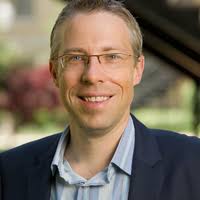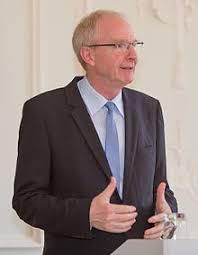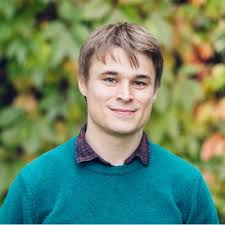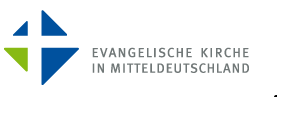Consortium
The ITN beneficiaries (six European universities) cooperate closely with nine non-academic partner organizations that have been selected for their relevant competences and qualifications. We are also receiving advice from our Scientific Advisory Board (SAB) whose members help the ESRs with invaluable academic and non-academic training input. Together, the SAB, the beneficiaries and the partner organizations in the network constitute a highly competent and many-facetted network specifically constructed to provide research training in the field of research in reception of Origen’s ideas about human freedom and human dignity and training in transferable skills.
BENEFICIARIES
Aarhus University
Aarhus University was founded in 1928. It has four faculties, 40,000 students, and 1,900 PhD students, 25% of which have a foreign nationality. The Department of Culture and Society comprises a wide range of studies that make it possible to approach cultural and social conditions from many different angles: anthropology, archaeology, Asian studies, Arab and Islamic studies, philosophy and the history of ideas, history, classical studies, area studies Europe, the study of religion, and theology. The department has three PhD programs covering these topics.
Scholar in charge
Prof. Anders-Christian Jacobsen
University of Bristol
The University of Bristol is one of the most prestigious universities in the UK. It is a thriving international community combining excellence in research with a vibrant entrepreneurial culture. Research is at the heart of the University's mission and accounts for its international reputation. The University organises its academic activities across six faculties: Arts/Humanities, Biomedical Sciences, Engineering, Health Sciences, Science and Social Sciences and Law. In the 2014 Research Excellence Framework (REF2014), over 98% of research at the University was deemed to be of an international standard. Over 83% of the research assessed was awarded either the top 4* rating, defined as 'world leading', or the 3* rating, 'internationally excellent'. As a result, in 2015-16 the University was allocated the 8th highest share of government research funding in England. The University participates in hundreds of international collaborations both within and outside of Europe and attracts research funding from organisations around the world.
The Department of Classics and Ancient History at the University of Bristol has a long-established reputation as a centre for the study of Classical Reception and participates in the Classical Reception Studies Network. The Department hosts the internationally renowned Institute for Greece, Rome, and the Classical Tradition; in the most recent Research Excellence Framework, 77% of the Department's research (across outputs, impact, and environment) was rated at 3* or 4* (i.e. internationally excellent or above). This result places Bristol among the top seven Classics departments in the UK outside of Oxford, Cambridge, and London.
Scholar in charge
Prof. Karla Pollmann
Westfälische Wilhelms-Universität Münster
The University of Münster was founded in 1780 and has a strong research profile in humanities and a strong international profile. It has 37,000 students (8% from abroad), and 400 partnership agreements with international universities and other academic institutions. It offers 250 courses of study and is built up by 15 departments in seven faculties. The Faculty of Catholic Theology offers studies in biblical, historical, systematic, and practical theology as well as philosophy. Moreover, this faculty hosts the Origen Research Centre.
Scholar in charge
Prof., Dr. Dr. Alfons Fürst
Martin Luther Universität Halle-Wittenberg (MLU)
MLU dates back to 1502. At present, more than 20,000 students are enrolled at the university, which encompasses over 190 subjects in 10 faculties and 10 interdisciplinary research centers as well as 6 thematic units. There are also approx. 2000 international students from over 110 countries. The Faculty of Theology currently encompasses two institutes and offers studies in classical subjects (church history, systematics, Old and New Testament studies, practical theology, religious studies, philosophy) as well as advanced courses in specialized areas, e.g. studies on ancient Oriental and Hellenistic religions, Reformation studies, Enlightenment, studies on Esotericism).
Scholar in charge
Prof. Friedemann Stengel
|
Friedemann Stengel: friedemann.stengel@izea.uni-halle.de
|
Università Cattolica del Sacro Cuore
The university was founded in 1921 and has 41,000 students, among which 3,100 are international students. It has four campuses, 54 institutes, 22 departments, 70 research centers, and almost 100 master degree programs. The array of course offerings in the Faculty of Arts and Philosophy covers the study of classical and modern literature, philosophy, history, art and archaeology, communication, cultural heritage, and visual and performing arts. The Department of Philosophy is one of the most active in Italy and promotes an extensive research in collaboration with scholars of national and international research centers.
Scholar in charge
Prof. Elena Rapetti
Charles University
Charles University in Prague was founded in 1348 and is the largest Czech university. It has 17 faculties, three institutes, and six other centers of teaching. The university has more than 52,000 students, studying in over 300 accredited study programs that cover 655 fields of study. More than 7000 students are international. The Protestant Theological Faculty offers study programmes in theology, philosophy, and social and pastoral work and has a strong emphasis on research, particularly in the fields of biblical studies, Czech church history, and philosophy.
Scholar in charge
Prof. Lenka Karfíková
PARTNER ORGANIZATIONS
Franckesche Stiftungen zu Halle
The idea of the theologian and educationalist A.H. Francke, put into practice from 1695, was the comprehensive education and training of young people. From 1698, he built the ensemble that came to be known as the Francke Foundations. The historic collections of the Foundations include the Wunderkammer (a cabinet of artefacts and natural curiosities), the unique library, and the archive with several thousand handwritten documents. The Foundations run departments in the fields of culture and scholarship. Their work is dedicated to preserving and developing the cultural heritage, to relevant interdisciplinary and international research, to promoting cultural and social education, and to disseminating knowledge in this field. The Foundations run a study center with library, archive and research projects as well as departments for public relations and publications.
Walter de Gruyter GmbH
The independent publishing house Walter de Gruyter, with its main seat in Berlin, was established in 1749 and comprises several former publishing houses with different fields of expertise, e.g., theology, linguistics and religious studies, all specializing in high-quality academic literature. Walter de Gruyter will provide secondments to the PhD students with a focus on training in academic publishing, such as evaluation of manuscripts, editorial work, printing processes, and marketing.
Lutheran Church of Middle Germany
The Lutheran Church of Middle Germany is a united church body covering most of the German states of Saxony-Anhalt and Thuringia and some adjacent areas in Brandenburg and Saxony. It supports historical and scientific research of Protestant tradition in Germany and has a wide net of social work activities connected to institutions for elderly people, children, disabled and homeless people, etc. Thus, it has experience with how questions related to human freedom and dignity are handled in modern church organizations.
Dean and Chapter of Canterbury
Dean and Chapter of Canterbury’s archive of manuscripts dates back to Anglo-Saxon times and holds a wealth of manuscripts, photographs, maps, and other records dating back to the late 8th century, making it an extraordinarily rich resource for researchers. It cooperates with the University of Kent and other research institutions and is experienced in creating modern exhibitions in relation to themes where documents rather than material items are available.
Mohr Siebeck GmbH & Co. KG
Mohr Siebeck GmbH & Co. KG, seated in Tübingen, is an independent publishing house which was founded in 1801 and has specialized in publishing international, high-quality academic works within the fields of theology, religious studies, classics, history and philosophy. Mohr Siebeck will provide secondments to the PhD students with a focus on training in academic publishing, such as evaluation of manuscripts, editorial work, printing processes, and marketing.
Dar al-Kalima College of Arts and Culture
The Dar al-Kalima College of Arts and Culture is an institution of higher education in the Bethlehem region that is dedicated to providing quality education that meets the economic, social, cultural, intellectual, and spiritual needs of the youth in Palestine. Secondments in this organization will equip the ESRs with modern management skills and with unique possibilities to learn how ideas of human freedom and dignity are employed in a context characterised by social and political oppression.
Etikos Aps
Etikos Aps, Aarhus, is a Human Resource consultancy within applied ethics established in 2006. The company has previously been involved in larger research programs in cooperation with researchers and scientists. It has specialized in creating organizational and leadership change by applying a research-based ethical framework to managerial and cultural problems in both public organizations and private firms. Thus, they utilize ideas about human freedom and dignity in their daily work.
Aschendorff Verlag GmbH & Co. KG
Aschendorff Verlag GmbH & Co. KG, located in Münster, has been a renowned independent scholarly as well as newspaper publisher since 1720. Today, its particular fields of expertise in academic books lie, among other things, within the areas of history, theology and philosophy. Aschendorff will provide secondments to the PhD students with a focus on training in academic publishing, such as evaluation of manuscripts, editorial work, printing processes, and marketing.
Diocese of Pécs
The Diocese of Pécs, Christian Heritage Institute, situated in Hungary, has a long history, since the deed to the diocese’s foundation was issued already in 1009. The institute has a large library of both old and new theological books and a specialized knowledge in questions relating to the research project, e.g., in church management, arrangements of academic seminars and conferences, and how patristic theology can inspire work in modern church organizations.
SCIENTIFIC ADVISORY BOARD
The Scientific Advisory Board (SAB) was established in May 2016 with the board members Em. Prof. Dr. Theo Kobusch from Bonn University and Prof. Peter Martens from the University of St. Louis. In May 2018, Ben Ryan from the British think tank Theos accepted our invitation to join the board.
Theo Kobusch is emeritus professor of philosophy at the Rheinische Friedrich-Wilhelms-Universität Bonn and was managing director of the Institute for Philosophy there. He is co-editor and author of numerous books and articles about Origen and related subjects, and the managing director of the Society for Ancient Philosophy.
Peter Martens is professor of Early Christianity and chair of the Department of Theological Studies at Saint Louis University. An author of several books and articles, he specializes in the history of Christianity in late antiquity, with wide-ranging interests in the scholarly practices of early Christians.
Ben Ryan studied Theology and Religious Studies at the University of Cambridge and also has an MSc in European Studies from the LSE European Institute. He is the author of the Theos reports A Very Modern Ministry: Chaplaincy in the UK, A Soul for the Union and Catholic Social Thought and Catholic Charities and Grant Making in Britain Today.
 P. Martens
P. Martens
 T. Kobusch
T. Kobusch
 B. Ryan
B. Ryan












